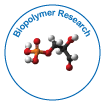Unsere Gruppe organisiert über 3000 globale Konferenzreihen Jährliche Veranstaltungen in den USA, Europa und anderen Ländern. Asien mit Unterstützung von 1000 weiteren wissenschaftlichen Gesellschaften und veröffentlicht über 700 Open Access Zeitschriften, die über 50.000 bedeutende Persönlichkeiten und renommierte Wissenschaftler als Redaktionsmitglieder enthalten.
Open-Access-Zeitschriften gewinnen mehr Leser und Zitierungen
700 Zeitschriften und 15.000.000 Leser Jede Zeitschrift erhält mehr als 25.000 Leser
Indiziert in
- Publons
Nützliche Links
Open-Access-Zeitschriften
Teile diese Seite
Abstrakt
Microbial Biosensors for the Detection of Organic Pollutants
Birhan Aynalem
Farmers are largely dependent upon agrochemicals to boost crop product through soil fertilization and nonentity pests, pathogens, spongers, and weeds operation. Still, contentious operation of agrochemicals on the ranch has exacerbated residual accumulation and has come problematic for environmental safety besides causing complaint to humans and other creatures. Therefore, the analysis of chemical remainders from the terrain is vital for policymakers and communities. substantially, druggists were devoted to assaying the being pollutants from different sources by using largely sophisticated chromatographic outfit, although it’s time taking, laborious, expensive, and that needed well- trained professionals. Still, biosensors are more important to dissect chemical pollutants from different samples using colorful bio reporters integrated with electrochemical and optic transducers. Microbes are metabolically different, amenable for inheritable engineering, cost effective in culturing and tolerant to different conditions. Therefore, microbial biosensor is landing attention and getting more effective for environmental monitoring. Thus, this review assessed the recrimination of microbial biosensors for fungicide discovery and the part of inheritable engineering for strain enhancement.
Zeitschriften nach Themen
- Allgemeine Wissenschaft
- Biochemie
- Chemie
- Genetik und Molekularbiologie
- Geologie und Geowissenschaften
- Immunologie und Mikrobiologie
- Klinische Wissenschaften
- Krankenpflege und Gesundheitsfürsorge
- Landwirtschaft und Aquakultur
- Lebensmittel & Ernährung
- Maschinenbau
- Materialwissenschaften
- Medizinische Wissenschaften
- Pharmazeutische Wissenschaften
- Physik
- Sozial- und Politikwissenschaften
- Umweltwissenschaften
- Veterinärwissenschaften
Klinische und medizinische Fachzeitschriften
- Anästhesiologie
- Augenheilkunde
- Betrieb
- Dermatologie
- Diabetes und Endokrinologie
- Gastroenterologie
- Genetik
- Gesundheitspflege
- Immunologie
- Infektionskrankheiten
- Kardiologie
- Klinische Forschung
- Medizin
- Mikrobiologie
- Molekularbiologie
- Neurologie
- Onkologie
- Pädiatrie
- Pathologie
- Pflege
- Toxikologie
- Zahnheilkunde

 English
English  Spanish
Spanish  Chinese
Chinese  Russian
Russian  French
French  Japanese
Japanese  Portuguese
Portuguese  Hindi
Hindi